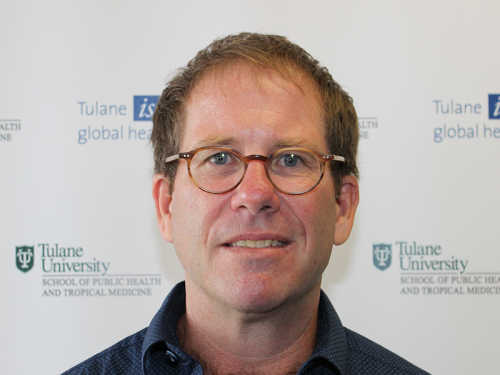
By Thom Eisele, PhD, MPH
Dr. Thom Eisele is a professor with joint appointments in the Departments of Tropical Medicine and Infectious Diseases and International Health and Sustainable Development within the Celia Scott Weatherhead School of Public Health and Tropical Medicine. He is also director of the Center for Applied Malaria Research and Evaluation. His expertise includes malaria epidemiology, evaluating the impact of control and elimination strategies, and measuring intervention coverage and health outcomes. His current research focuses on the effectiveness of malaria control strategies.
At Tulane’s Center for Applied Malaria Research and Evaluation (CAMRE), our team conducts field-based research to strengthen malaria control and elimination programs. We focus on measuring how new malaria control strategies improve health outcomes within a particular area, as well as how interventions are delivered, how they are received in different communities and how they affect health outcomes across regions. A key aspect of our applied research has been working alongside ministries of health and international partners to assess the effectiveness of national strategies when implemented under real-world conditions. By evaluating how programs function at scale, we help anchor malaria responses with evidence drawn directly from the places where the disease continues to take its greatest toll.
In Zambia, we have evaluated the impact of mass treatment strategies, including both mass drug administration as well as mass test-and-treat approaches. These strategies aim to reduce the parasite reservoir in entire communities and not just in individuals with symptoms. Our work examines how these interventions reduce the prevalence and incidence of malaria.
The U.S. President’s Malaria Initiative (PMI) has supported many of our applied malaria research projects, especially through the PMI Insights consortium project most recently. Our team led several studies under this larger project that included generating timely data for national malaria programs. With support from USAID, we conducted evaluations that help governments adjust intervention strategies and respond to shifting conditions in the field. We also helped strengthen surveillance systems to give officials access to more timely, accurate data.
Malaria continues to pose one of the most urgent threats to global health. In 2023, the African region recorded more than 246 million cases and 569,000 malaria-related deaths, mostly among young children in poor rural areas without access to adequate housing and health services. Our research directly contributes to reducing mortality and strengthening how national programs respond to the burden of severe disease.
This work relies on consistent federal investment. Support from USAID, the Centers for Disease Control and Prevention (CDC) and the National Institutes of Health (NIH) allows us to conduct long-term research and share findings that help shape global health programs. Without that support, critical components of malaria research and response would begin to erode.
“Funding cuts threaten more than research. Reductions in malaria support will disrupt treatment and delay the evaluation of promising tools. These setbacks will have serious consequences for the global effort to control and eventually eliminate the disease.”
I have seen the results. I have seen people regain mobility, return to school, go back to work and reconnect with their communities. In places that had no diagnoses, there are now answers. In places with no treatment, there is hope. These outcomes are possible because of federally supported research. They show why this work matters.
Malaria will not disappear on its own. It requires sustained, evidence-based intervention backed by the resources necessary to reach vulnerable communities. Our team continues to advance that mission. With strong federal support, we can help countries respond to emerging threats, improve health systems and push closer to ending malaria as a public health threat. Without that support, we risk reversing decades of progress and putting millions of lives at risk.
